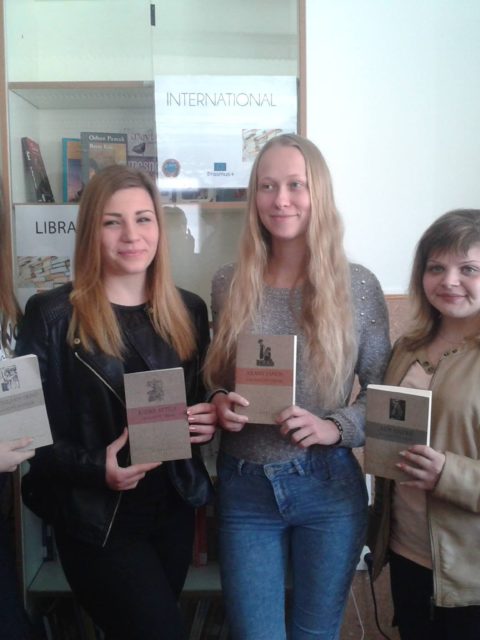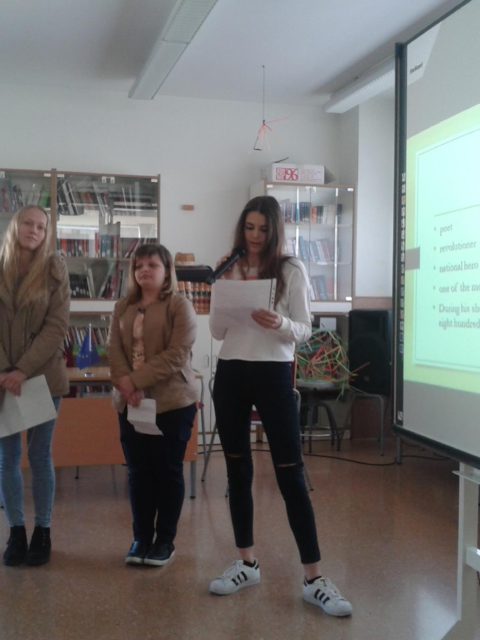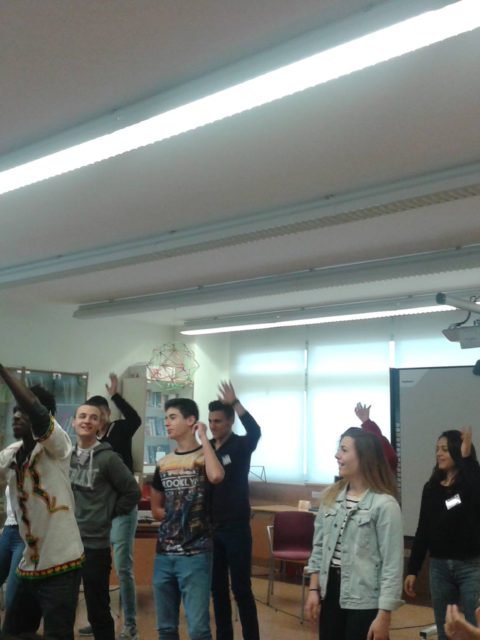Alicante, Spain (7-13 March 2016)
Two teachers and four students travelled to this mobility. Unfortunately the third teacher could not travel because of health problems. We had several tasks before the mobility. We had to select photos and prepare a summary of our national mobility and to send them to the Spanish partner school. With the help of these materials they prepared the project final booklet that we received at the end of the mobility. It was really nice to recall the memories of the previous mobilities.
Another task for us was to make a video film and to introduce a person who does remarkable volunteering work in our neighbourhood. We chose the director of an association called „Karitasz” in town Gyöngyös. She does a lot for lonely old people and the homeless in and around the town. Our school coordinator gave the students help with arranging the meeting with the interviewee, the IT teacher with preparing the English subtitles for the video film and with the PPT presentation, and the teacher of English with correcting the English spelling of the subtitles and the PPT presentation.
We had a project task to take three books for an international library, and also to make a PPT presentation on the authors’ biographies and the plot of the books. Our students chose Endre Ady, János Petőfi and Imre kertész , who had won a Nobel-prize in literature for his novel „Fatelessness”. These presentations provided us with a lot of information and we could get to know each other’s literary heritage.
With the help of the host pupils’ presentation we got to know the Spanish education system, volunteering associations and the pupils’ weekly voluntary service. The participants could involve in the local voluntary work by collecting rubbish on the beach. We also had the chance to meet the representatives of the voluntary associations of the region in a workshop and an immigrant young man told us his story and we could ask him questions.
The Spanish pupils showed us the lingual diversity of the local people: we had a language course not only in Spanish but also Valencian language which is a dialect spoken by a lot of people there.
On a tour on the beach which is a protected area we could watch sea birds, fossils and plants which was really educational. Water sport activities were not only entertaining but also were suitable for educating the participants for healthy way of life.
The trips in the region broadened the participants’ knowledge in history, culture and architecture.
The Spanish music and dance were present throughout the whole mobility that contributed to the friendly atmosphere. It was a worthy ending to our two-year’s project.








